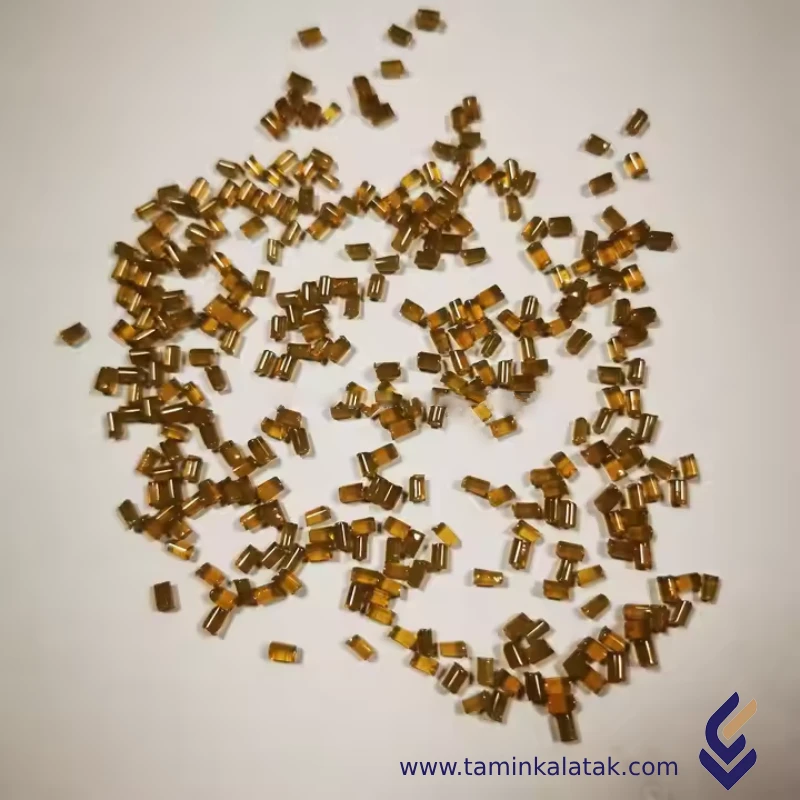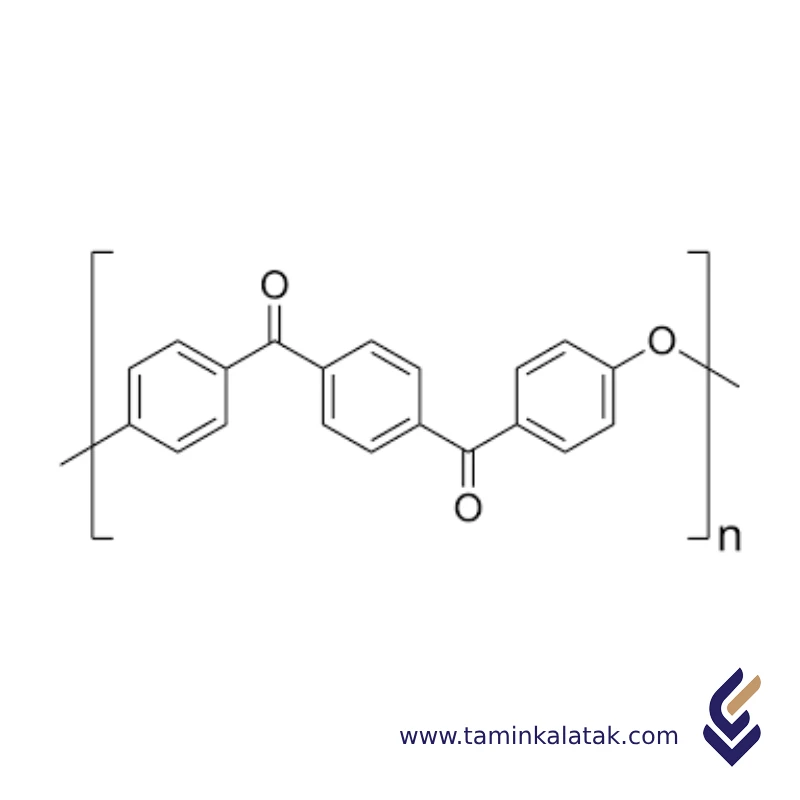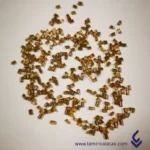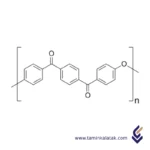Polymers are made up of very large molecules made up of many repeating units called monomers, which ultimately form this long polymer chain
Engineering polymers are high-performance plastics that exhibit superior mechanical, thermal, chemical, and electrical properties compared to standard commodity plastics.
PolyEtherKetoneKetone (PEKK)
PolyEtherKetoneKetone (PEKK) is a high-performance thermoplastic polymer belonging to the polyaryletherketone (PAEK) family. It is known for its excellent mechanical, thermal, and chemical resistance properties, making it a preferred material in demanding applications such as aerospace, automotive, medical, and industrial manufacturing.
Structure
PolyEtherKetoneKetone (PEKK) is a semi-crystalline polymer consisting of repeating aromatic rings linked by ether (–O–) and ketone (–C=O–) functional groups. Its backbone structure is based on polyaryletherketone (PAEK) chemistry, where the ratio and arrangement of ether and ketone groups influence its crystallinity and thermal properties. PEKK has a unique molecular structure that allows for variations in the placement of ketone groups, leading to different isomeric forms, primarily the Terephthaloyl (T) and IsoPhthaloyl (I) forms. These variations affect its processing characteristics and mechanical performance. The presence of ketone groups enhances its thermal stability, while the ether linkages provide flexibility, making PEKK a versatile material for high-performance applications.
Properties
PolyEtherKetoneKetone (PEKK) exhibits a combination of high mechanical strength, excellent thermal stability, and outstanding chemical resistance, making it suitable for demanding applications. It can withstand continuous use temperatures of up to 260°C and has inherent flame retardancy with low smoke and toxicity emissions. PEKK offers superior wear and abrasion resistance, ensuring durability in high-friction environments. Its chemical resistance allows it to withstand exposure to acids, solvents, and hydrocarbons. The polymer’s crystallinity can be tailored, providing flexibility in processing through injection molding, extrusion, and 3D printing. Compared to other polyaryletherketones, PEKK has lower crystallization rates, allowing for better adhesion in composite materials and easier manufacturability. These properties make it a preferred choice in aerospace, automotive, medical, and industrial applications where high performance is required.
Advantages of PolyEtherKetoneKetone (PEKK)
- High thermal stability, withstanding temperatures up to 260°C
- Excellent mechanical strength and durability
- Superior chemical resistance to acids, solvents, and hydrocarbons
- Inherent flame retardancy with low smoke and toxicity emissions
- Exceptional wear and abrasion resistance for high-friction applications
- Tunable crystallinity for improved processability and composite adhesion
- Good electrical insulation properties for electronic applications
- Compatible with various manufacturing techniques, including injection molding, extrusion, and 3D printing
Disadvantages of PolyEtherKetoneKetone (PEKK)
- Higher cost compared to standard thermoplastics
- Requires specialized processing equipment due to high melting temperatures
- Limited availability compared to more common engineering plastics
- Can be brittle in some formulations depending on crystallinity levels
Applications of PolyEtherKetoneKetone (PEKK)
- Aerospace & Defense: Structural components, aircraft interiors, and engine parts
- Automotive: Lightweight alternatives to metal components for fuel efficiency
- Medical: Biocompatible implants, prosthetics, and surgical instruments
- Electronics: High-performance insulation materials, connectors, and circuit board components
- Oil & Gas: Seals, tubing, and bearings for extreme temperature and chemical resistance
- 3D Printing: Used in additive manufacturing for high-strength, heat-resistant parts
Applications
| Applications | , , , , , |
|---|
PEKK
| Products | Grade | MFI | Density (g/Cm3) | Process Method | Applications | Data Sheet | MSDS |
|---|---|---|---|---|---|---|---|
| PEKK | Kepstan® 6000 Series | 6-15 cm³/min | 127,00 | Extrusion Injection Molding Thermoforming Powder Coating Additive Manufacturing | Aerospace Components Automotive Parts Oil & Gas Equipment Medical Implants 3D Printing (Additive Manufacturing) Industrial Coatings | ||
| PEKK | Kepstan® 7000 Series | 6-12 cm³/min | 129,00 | Extrusion Injection Molding Thermoforming Powder Coating Additive Manufacturing | erospace Structural Components Automotive Lightweight Parts Continuous Fiber Composites (UD Tapes, Coated Fabrics) High-Performance Seals and Gaskets Oil & Gas Equipment (Pipes, Linings, Seals) Medical Implants and Surgical Instruments |










